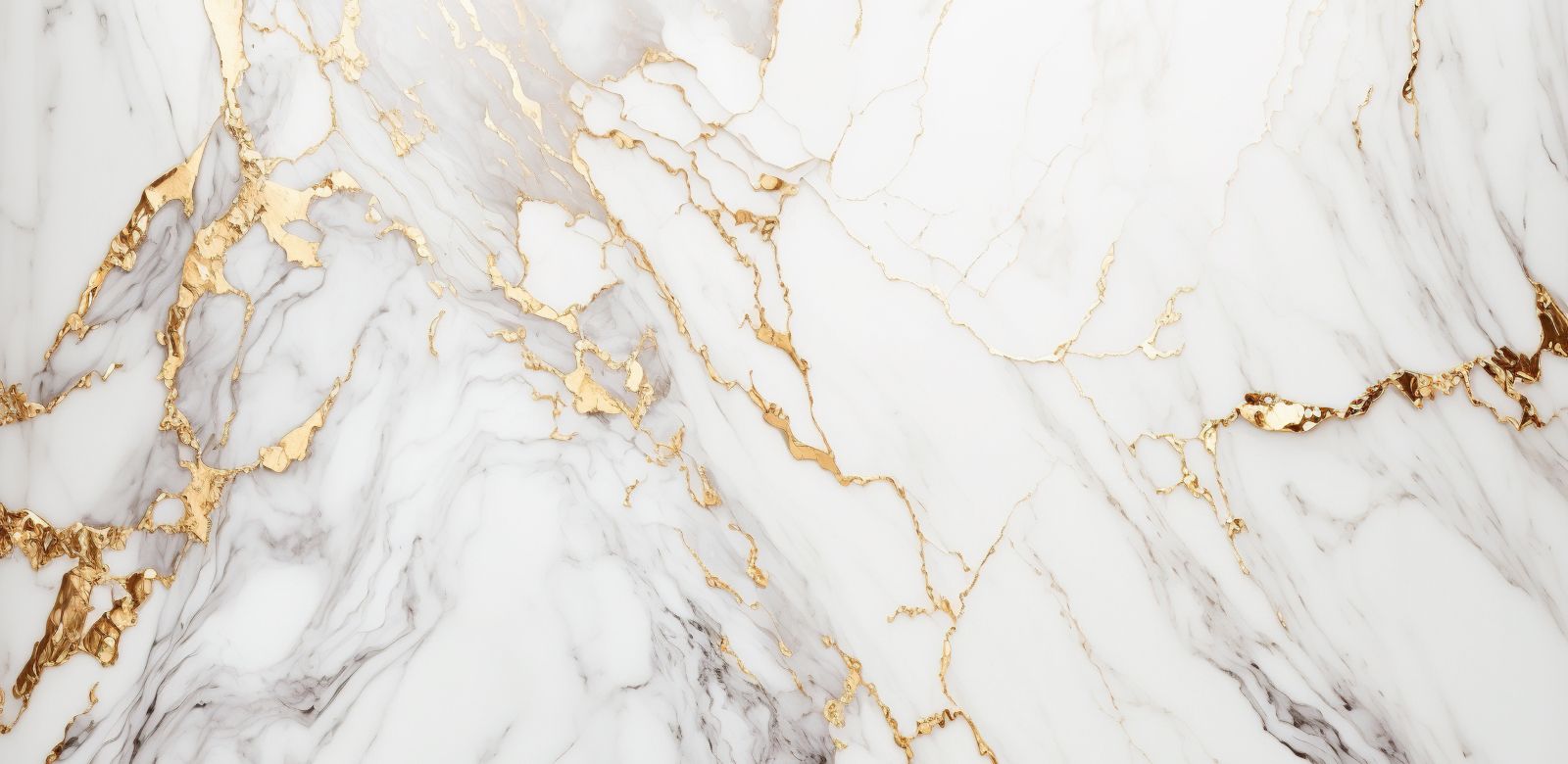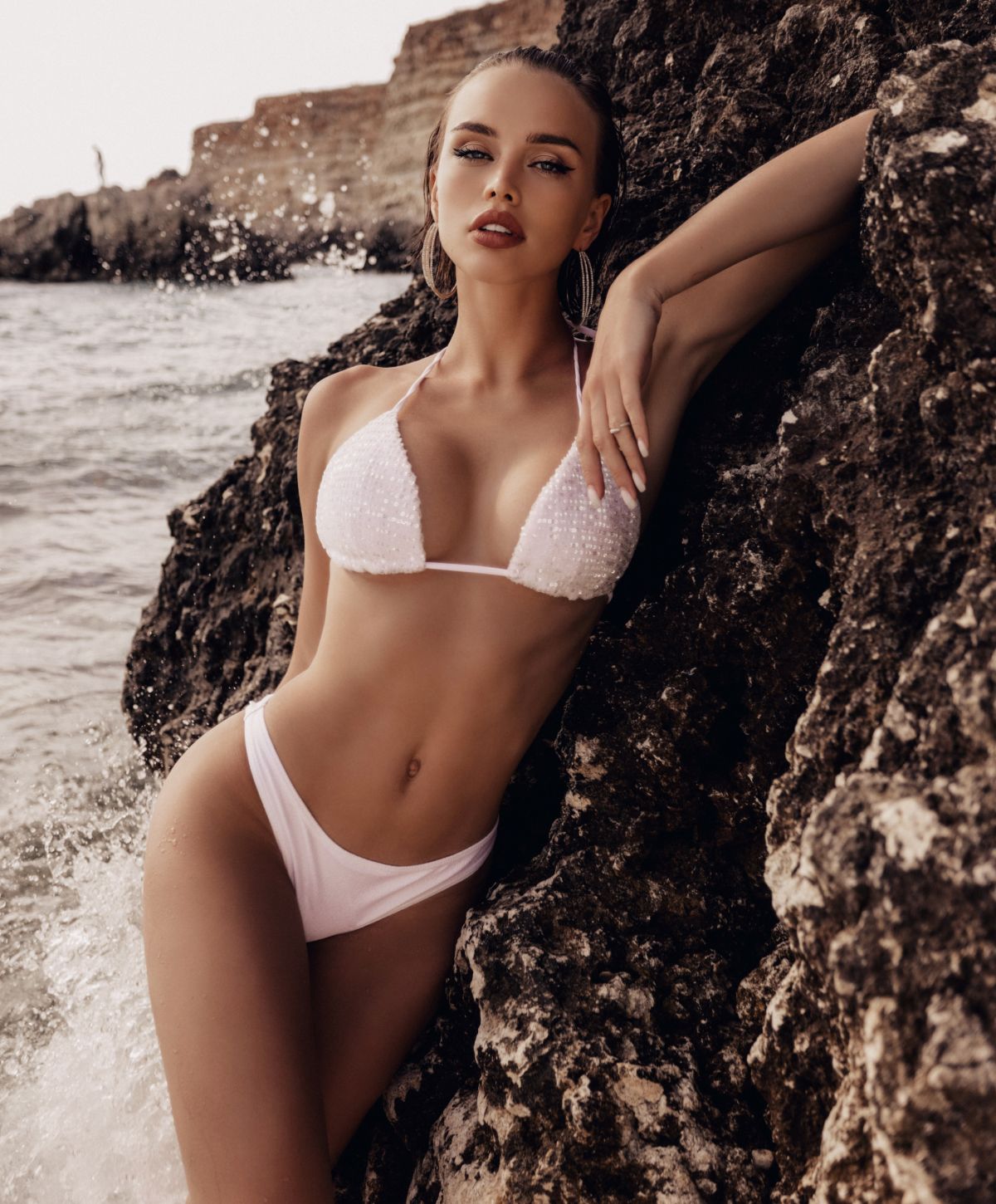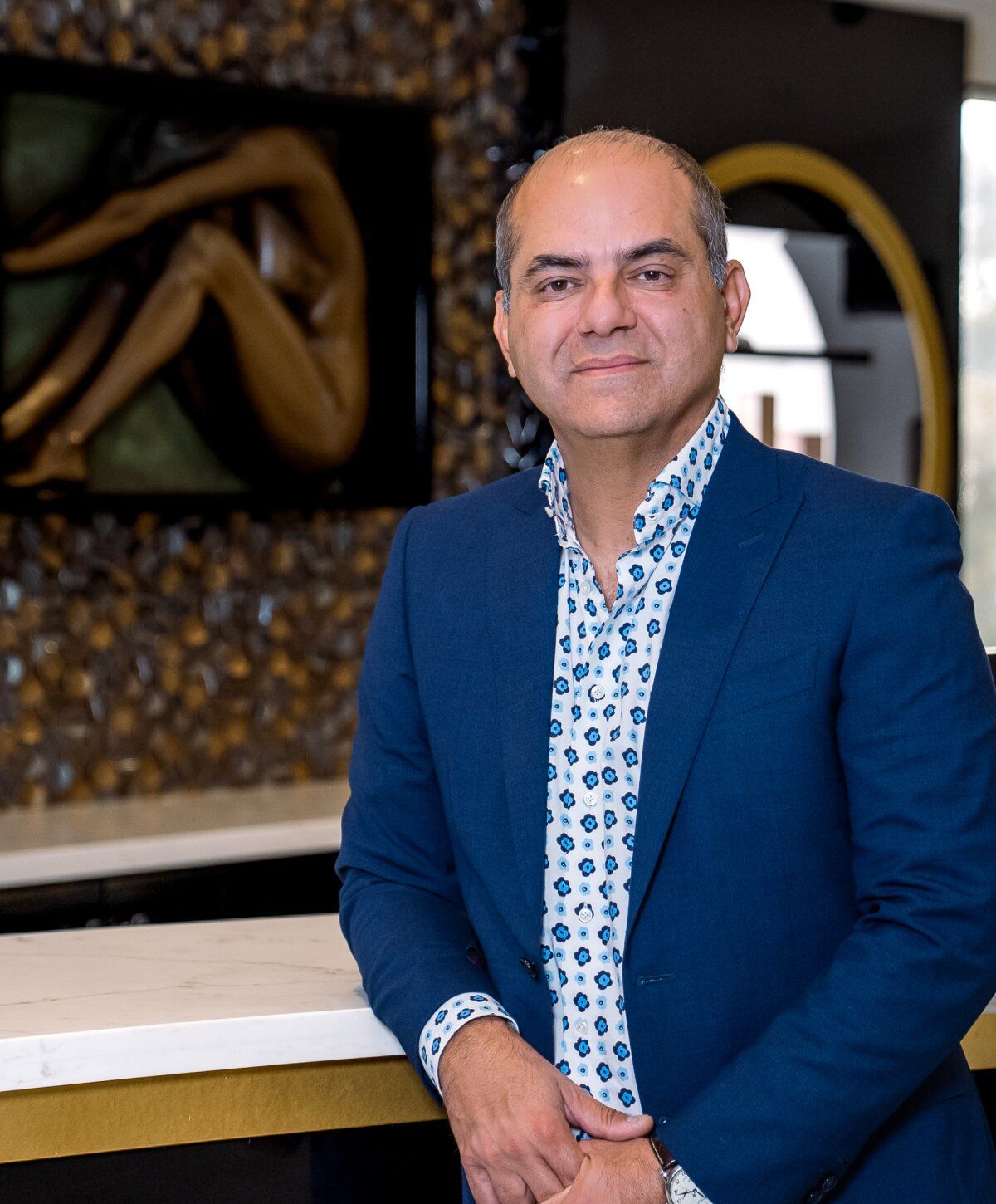



Achieve your “perfect” breasts — a breast augmentation at The Aesthetic Centers in Newport Beach, CA, offers you a unique opportunity to customize the shape of your breasts and recreate your desired feminine curvature. With a simple procedure performed by our board-certified plastic surgeons, you can wear an outfit that reveals more cleavage, change your wardrobe style altogether, or simply create the proper balance between your breasts and hips.
1 of 63

Whether you’re rocking an itty-bitty bikini or just a simple tee, feeling happy with your chest size and shape can make a huge difference in your overall confidence. That’s why breast augmentation — or a “boob job” — is one of the most popular procedures in the world.
Although women’s breasts come in various shapes and sizes, studies show that people’s notion of an ideal breast is one with a 45:55 ratio — 45% of fullness above the nipple line and 55% of fullness below the nipple line, with a slight teardrop shape.
Also known as breast enhancement or augmentation mammoplasty, breast augmentation has one main goal: to enhance the size and shape of a woman’s breasts using breast implants.
By doing so, you get the opportunity to customize your breast size, put the curves in the right places, and achieve a more feminine body.
Breast augmentation is actually one of the most popular cosmetic surgeries of all time, with over 300,000 procedures performed in the United States every year. The number of procedures also continues to increase every year since 2006, with the majority of women opting for silicone implants (88%) over saline implants (12%).
Interested in breast augmentation? Learn more about Newport Beach breast augmentation as you read the rest of this page.

The size of your breasts is determined by the amount of breast gland and fat that it contains.
On the other hand, breast shape is determined by many factors, including genetics, aging, weight fluctuations, and pregnancy. These factors predetermine the volume of the breast fat and glandular tissue, as well as connective tissue.
In the last 15 years, the average bust size has increased from 34B to 36C in the USA. Whether this increase is due to breast augmentation surgeries or related to higher body weights is not known.
The cup size is a measure of the volume of the breasts, and is denoted by the first letters of the alphabet.
Breasts are usually asymmetrical, meaning one breast may be a different size or shape than the other breast.
All of these are perfectly normal. Getting breast augmentation with implants or your own fat can restore volume and increase the size of your breasts, enabling you to achieve a more filled-in breast shape.
Consult our board-certified plastic surgeon to discuss your options!

Our board-certified plastic surgeons grasp the intricacies of breast anatomy. Despite the transformation brought on by aging, pregnancy, and weight loss, achieving fuller, symmetrical, well-shaped, and properly positioned breasts is feasible.
We have developed a systematic approach to optimize your satisfaction and limit (if not totally avoid) revisionary procedures following breast augmentation.
Our approach involves a thorough preoperative evaluation to ensure accurate implant size, shape, and placement. Prioritizing a natural feel and appearance, he aligns the procedure with your individual anatomy and preferences.
We also take proactive steps to prevent potential post-surgery complications, such as implant migration and capsular contracture.


When selecting breast implants, getting the size right is easily the most important factor you should consider. Our surgeons take several approaches to help you come up with a decision based on your anatomy, personal preferences, and appearance goals.
Click here to learn more about how you should choose your proper implant size.
At The Aesthetic Centers, we also offer Natural Breast Enhancement via Fat Transfer. If you are not ready to have implants, you may wish to consider breast fat transfer.
Breast implants enhance breast size but not shape, while breast fat transfer excels in sculpting the breasts. Fat transfer augments specific areas for a fuller shape and more cleavage. Fat transfer is also ideal for correcting unevenness. Unlike implants, fat transfer poses fewer risks and offers natural, permanent results, making it a versatile option for shaping your body and enhancing your breasts.
Choosing between implants and fat transfer can be tricky. We review some important considerations below.
Ultimately, the best choice depends on your desired outcome and body. But at The Aesthetic Centers, you can elect to have both procedures done at the same time to achieve a larger breast with implants that are also shaped with your own fat.

Aside from incision location and implant placement, one of the three main decisions you have to make once you decide to get breast augmentation is the size and type of implant you’re getting.
Used for over 40 years, breast implants come in various types and may be placed through different incisions and locations. The choice of implant type, size, shape, and other features all depend on your breast anatomy, body type, and size goals. These are influenced by your lifestyle, goals, personal preferences, and the sound judgment of your chosen plastic surgeon.
Our surgeons will thoroughly discuss your options when considering the location of incisions, the size of the implants, and the exact placement of implants. Such attention to detail will ensure that you are fully satisfied with the end result.
Check out the different types of breast implants available to you:
Many women consulting with us often want to achieve “natural-looking” breast augmentation results. You have two breast implant options to achieve just that: silicone and saline breast implants.
Both implants have been approved by the US Food and Drug Administration (FDA) for use during breast augmentation. That means their benefits, features, and safety have been rigorously researched, tested, and reviewed by an independent panel of physicians.
In fact, breast implants are among the most studied medical devices ever, having gone through decades of research in thousands of women.
FDA-approved companies that offer both silicone and saline breast implants in the US include Allergan and Mentor. Sientra only offers silicone implants.
Learn more about the three types of implants available in the USA: Allergan Implants, Mentor Implants, and Scientra Implants.
Saline implants consist of a silicone rubber shell filled with sterile saline or saltwater solution. It is the very same fluid that makes up the majority of water in your body.
Initially developed as an alternative to silicone gel implants, saline implants pose a number of advantages over silicone implants. Their biggest advantage is safety, as any leak or rupture is easier and faster to detect. Plus, the saline filling is easily absorbed into the body and is excreted in the urine.
Saline implants come in smooth and textured shells, as well as round and teardrop shapes. They are also adjustable, so doctors can fill each implant separately to obtain near-perfect symmetry.
Mentor’s Spectrum® breast implant is an example of an adjustable saline implant that allows modifications to breast volume for up to six months after breast augmentation. It gives you and your surgeon more flexibility and control over the result of your breast augmentation.
To learn more about Spectrum® and other Mentor implants, click here.
Silicone breast implants consist of silicone rubber on the outside and a semi-solid gel of silicone inside. Silicone is a synthetic substance that closely resembles the look and feel of natural breast tissue, making it an obvious choice for breast augmentation implants. Although it is recommended only for women ages 22 and older, younger patients can use them for reconstructive purposes.
According to most breast augmentation patients, silicone implants feel more realistic than saline implants. They are also more convenient, as they are already pre-filled before surgery. As a result, silicone implants became the top option for women undergoing breast augmentation.
On the downside, it means they require a slightly larger incision compared to saline implants when inserting them.
Though not usually discussed by patients with their plastic surgeons, breast implant projection or profile is important in determining the degree of forward projection of that implant relative to your size, body type, and chest shape.
In other words, it’s all about choosing implants that look proportional and fit for your body. You can choose to have a low, moderate, moderate plus, high profile, or ultra-high profile.
Low profile implants have the smallest forward projection. If you have a wide frame, a low or moderate profile can adequately cover the natural diameter of your breast size.
Moderate profile implants are the most commonly used ones. They used to be the standard size of implants before different projection types were introduced. They provide a moderate degree of projection with a round fullness that still adds plenty of volume to your breasts. They are best suited for women with a narrow chest, as they make the chest appear wider.
This profile has a projection between a moderate and high profile and a base diameter narrower than a moderate profile. Moderate Plus is perfect for women with a medium chest frame and breast width who desire more projection.
High profile implants have the most amount of projection when compared to their base diameter. They are suited for women with narrow frames so that they can get the larger breast volume that they desire. Other implants may be too wide and carry the implant too far to the cleavage and underarms. If you want to have more fullness at the top part of your breasts, then high profile implants are also a good choice.
This profile has the narrowest base diameter and offers the maximal projection and fullness to the breasts.


In general, breast implants either have a round or teardrop shape
Round implants are the more commonly used breast implant shape. They resemble a compressed sphere and vary in terms of projection. This type of implant is recommended for women who want to have more lift, cleavage, and fullness in their breasts. Plus, they will not cause a change in appearance if your implants rotate. However, some patients may feel that they look too artificial, making them opt for more expensive teardrop implants instead.
Also known as anatomical implants, teardrop implants have sloped contours that are fuller at the bottom than the top, making them better simulate the natural shape of the breasts. Still, the final breast shape depends on the breast and muscle tissue rather than the implant.
Since teardrop implants are not round, they must be textured to keep them from turning the wrong way. They are also not strong enough to hold against the force of the breast tissue. Teardrop implants should be placed in exactly the right position, leaving less room for errors. If they move around, they can cause a very unnatural-looking profile.
One new type of silicone breast implant that you can get is the Gummy Bear implant, a gel-based implant with a cohesive gel filling. It has the feel and consistency of a gummy bear when you cut it, hence its moniker.
Compared to both saline and silicone implants, Gummy Bear implants are superior at holding their shape. They were invented to create a long-lasting implant that would retain an attractive and predictable shape. They are also more solid than other silicone models.
The Gummy Bear implant is best for women hoping to achieve natural-looking breasts even without much breast tissue to begin with. It can maintain its shape for multiple years, even longer than other round-type silicone implants. It also does not leak when it ruptures, unlike traditional silicone implants.
Gummy bear implants are inserted via the inframammary approach, which means they require a slightly larger incision.
In the US, Natrelle is the most recognizable line of Gummy Bear implants, manufactured by Allergan. Learn more about Allergan implants here.
In terms of texture, you can select between a smooth surface or a rough, textured surface
The majority of implants today have a smooth texture, especially the ones inserted directly under your chest muscle. Smooth implants settle into the breast more quickly and easily compared to textured implants. Because of their smooth surface, they are less likely to show wrinkling.
Textured implants were originally introduced in silicone implants to reduce the incidence of capsular contracture — the tightening and squeezing of a shell of scar tissue that forms around the breast implant surface.
This type of implant is effective when it is placed beneath the breast gland and over the chest wall muscle. However, it does not have a clear advantage when placed beneath the chest wall muscle. Moreover, textured implants have a slightly thicker and stiffer shell compared to smooth implants, making them more visible through the skin and more easily felt when the breast is touched.

With breast augmentation as one of the most common procedures performed by our surgeons, we have developed a systematic approach to optimize your satisfaction and reduce the need for revisions after your initial surgery.
Breast augmentation can be performed as an outpatient procedure in an ambulatory surgical facility or in-office surgical suite.
How Do Our Board-Certified Plastic Surgeons Perform Breast Augmentation?
Before your surgery, your surgeon will conduct a thorough preoperative evaluation of your condition and get accurate preoperative measurements to determine the right implant size.
He will also thoroughly discuss your options when it comes to the incision location, implant size, and implant placement. The emphasis is on achieving a natural feel and appearance so that you are fully satisfied with your results.
For breast augmentation, you will be put under general anesthesia by a board-certified anesthesiologist.
You have the following options when it comes to incisions, and your choice depends on your desires and unique anatomy.
Inframammary: An inframammary incision is made at the base of the breast, just over the breast crease. It has the most direct access to the submuscular and subglandular planes, so it is easy to insert the implants this way. Because it is far from your nipples and areolar complex, it is less likely to disrupt the milk ducts around the nipples.
Periareolar: This incision is made around the lower edge of the areola, which is the dark area surrounding the nipple. The use of this incision depends on the size of your areola. In general, inserting a silicone gel implant through a periareolar incision requires a cut measuring 4-5 cm. A slightly smaller incision may be needed for saline implants. Since it is placed at the border of the pigmented and non-pigmented skin, the resulting scar is not obvious and is nicely camouflaged. But women with areolae who cannot accommodate the incision would be better off exploring other incision options, like inframammary and transaxillary. On the downside, the periareolar incision is associated with a slightly higher rate of capsular contracture compared to an inframammary incision.
Transaxillary: The transaxillary incision is created near the armpit where the arm meets the chest area. It involves a 4-5 cm incision in the natural skin crease in the underarm area, through which a submuscular pocket will be created for implant placement. Though it avoids placing a scar on your breast, the transaxillary incision leaves a noticeable scar in your underarm area.
Transumbilical: You may also have your implants inserted through the navel using a transumbilical breast augmentation (TUBA). In this method, the implant is introduced through a tunnel under your abdominal skin, created between your navel and breast. That said, it is only applicable for saline implants. You can get a more in-depth look at TUBA here.
Transabdominal: Transabdominal breast augmentation (TABA) is a method used for those who want to get a breast augmentation and tummy tuck at the same time. In this method, you will have no breast incisions because the implants are inserted through the tummy tuck incision.
Once Dr. Agha has performed the incisions, the next thing to do is to insert the implants.
There are two main methods of implant placement: submuscular and subglandular.
In a submuscular or “under the muscle” breast implant placement, your plastic surgeon positions the implant just under your chest or pectoral muscles.
Doing so prevents interference with future mammograms. It also makes for a more natural breast appearance and a reduced rate of developing capsular contracture.
The only problem is that you might experience more discomfort right after surgery, thus leading to a longer recovery time.
Also known as a submammary or “over the muscle” implant placement, the subglandular implant placement positions the implant in front of the chest or pectoral muscles and directly beneath the breast glands and tissue. It also helps reduce post-operaative pain and soreness, as the implants do not stretch out the chest muscles. However, implants placed using this method might show more. It can also make mammogram readings less accurate, and even make you more at risk for capsular contracture.

After placing the implants, Dr. Agha closes the incisions using traditional or absorbable sutures. Your breasts will be wrapped and supported with a gauze bandage. You will also be fitted with a special surgical bra to support your breasts for the first few weeks. Some surgeons recommend using compression bandages instead.
Following breast augmentation, especially with transaxillary and TUBA procedures, the implants will often appear too high on the chest. This will gradually settle into place over a few weeks to several months as the intact supporting muscle fascia (muscle envelope) and the overlying breast skin stretch to accommodate the implants.

Please read the general information on recovery after breast surgery. Breast augmentation recovery varies from patient to patient.
Expect pain, discomfort, and soreness for the first few days after surgery, especially in the first 72 hours. Dr. Agha will prescribe you pain medications and muscle relaxant to manage any discomfort.
It is recommended to sleep on your back during the first week of your recovery to ensure that your breast implants are in a perfect position during the healing process.
You may hear and feel a sloshing in your breasts after surgery. It results from trapped air in the space around the implant and the natural fluid that accumulates after the operation. You have nothing to worry about this though as this will be absorbed by your body in a few weeks.
Remember to avoid wearing pushup and underwire bras for 4 weeks, as this may prevent your breasts from assuming their natural shape. Dr. Agha also advises doing breast massages during the first week to reduce the risk for capsular contracture.
Avoid any activities that might raise your blood pressure a week after your breast augmentation. You should also avoid any exercises that directly stress your operative site for about four weeks.
You may experience a burning sensation in your nipples for up to two weeks. You might also notice swelling on your breasts for a few weeks, with your skin looking particularly shiny.
Keep in mind that it is possible for your two breasts to heal differently. One may swell more, one may feel more uncomfortable, or their shapes may vary initially. This won’t be the case once you heal completely.
Check out this estimated timeline of your breast augmentation recovery:
|
Timeline |
Activity |
|
5-10 days |
Shower after cleared by Dr. Agha. |
|
10-14 days |
Driving allowed. |
|
1-2 weeks |
Return to work. Removal of sutures. |
|
2 weeks |
Low impact cardio exercises allowed. |
|
3-5 weeks |
Swelling subsides. May resume chest exercises. |
|
6 weeks |
Strenuous exercises allowed. |

Getting breast augmentation gives you the following results:
But keep in mind that breast implants are not guaranteed to last a lifetime. Future surgery may be needed to replace one or both implants. You should also schedule routine mammograms to monitor your breast implants.
Dr. Agha believes that understanding the breast anatomy and the changes that occur through aging, pregnancy, and weight loss are fundamental for achieving fuller, symmetrical, well-shaped, and properly positioned breasts. Thus, he developed a systematic approach to optimize your satisfaction and reduce the need for revisionary procedures following breast augmentation.

By enlisting the help of a board-certified and experienced plastic surgeon like Dr. Agha, you can enjoy the perks of having bigger breasts using a safe surgery that produces a long-lasting result. His approach includes a thorough preoperative evaluation, accurate preoperative measurements and sizing, an emphasis on achieving a natural feel and appearance, and prevention of complications like implant migration and capsular contracture. Having larger and more attractive breasts isn’t reserved for a select few bikini-clad women lounging at the beach. It does not even need to be a distant dream.

To know if you are a good candidate for breast augmentation, try to answer the following questions below:
Did you answer YES to any of these questions? It might be time to schedule a call with Dr. Agha to discuss how you can solve these problems with a myriad of breast augmentation options.
Wanting to get breast augmentation is one thing; knowing if you are fit to get one is another.
Here are some factors that may affect your breast augmentation results:
Age
Though adult women of any age can benefit from breast augmentation, it is recommended that your breasts should be fully developed before you get any breast implants. In the US, silicone breast implants are restricted to women aged 22 and older, while saline implants can be used for individuals as young as 18 years old.
Pregnancy and Breastfeeding
Breast augmentation isn’t recommended if you’re pregnant or breastfeeding.
Good Overall Health
It is important that you are in good health standing with no underlying heart, lung, or neurological conditions. If you have these, it might make your operation too risky.
Realistic Expectations
Discuss with your plastic surgeon the reasons why you want to get breast augmentation, including the results you’re expecting. You should also familiarize yourself with all aspects of the procedure — including post-operative care — to help you make an informed decision.
Although breast augmentation is relatively safe and breast implants have extensively been studied, the procedure still poses some risks like any other surgery. Some patients may even need to undergo additional surgery due to complications.
Discover the possible risks and complications of breast procedures in this article.
On average, breast augmentation costs between $6,000 and $7,000, according to RealSelf data. The total cost depends on a number of factors, such as the type of implants, location, anesthesia, and the expertise of your plastic surgeon. You also need to take into account the medical tests, laboratory workups, and recovery costs.
If you are going to pair breast augmentation with other procedures like a breast lift, you also need to factor that into your costs. Though breast augmentation is not typically covered by insurance, Dr. Agha offers financing plans to help curb the cost of your surgery.
Breast Implant Pros
Here are the reasons why you’d want to get breast implants for your breast augmentation surgery.
Breast Implant Cons
Some of the things you need to take note of before getting breast implants include:
Schedule Your Consultation
Get a private and personalized consultation at our beautiful practice in Newport Beach, CA.
3701 Birch St. #200, Newport Beach, CA 92660
By providing a telephone number and submitting the form you are consenting to be contacted by SMS text message. Message & data rates may apply. Reply STOP to opt out of further messaging.
If you would like to know more about how your data will be used, please review our Privacy Policy.